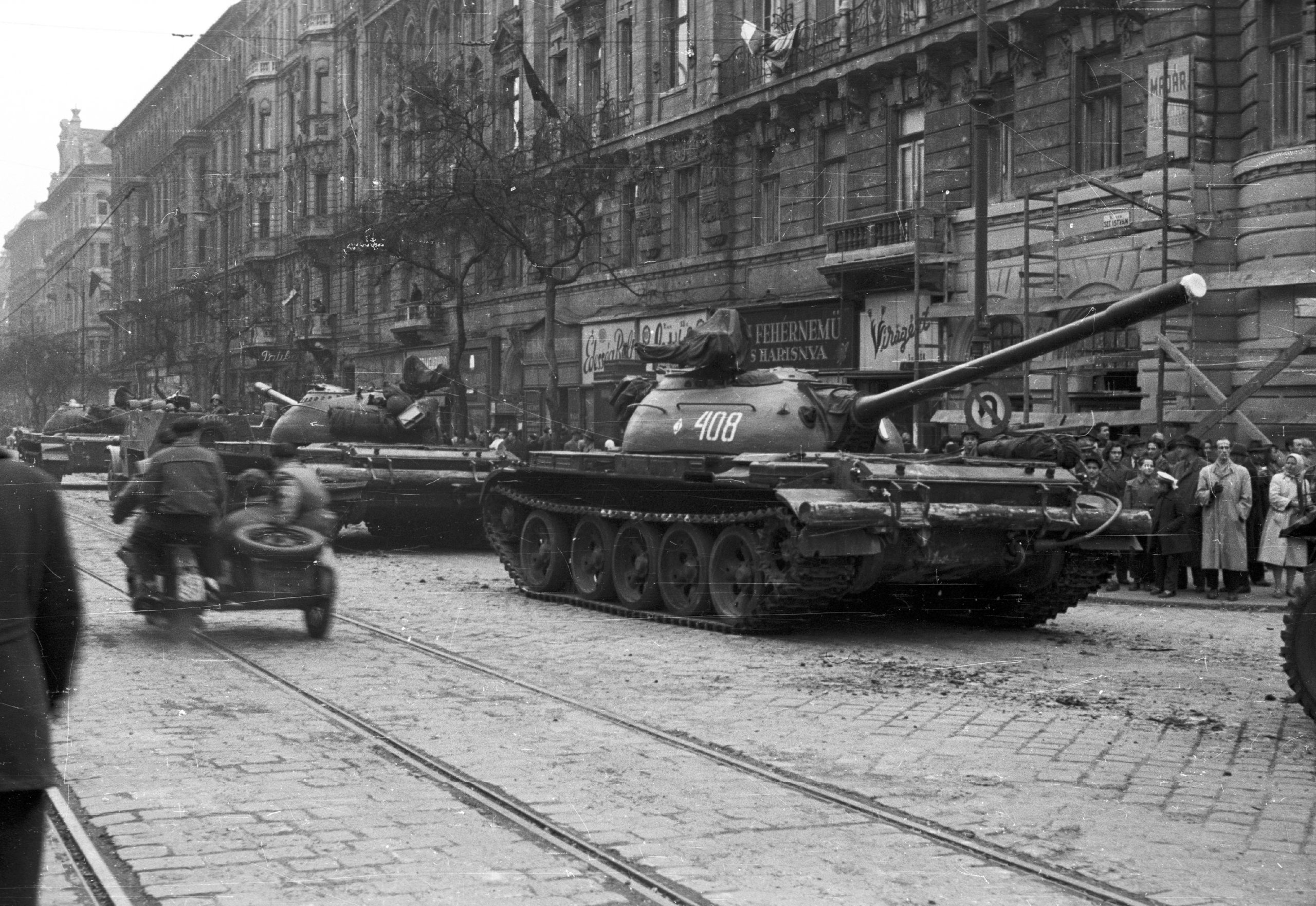
Hungarians will not let others take away their freedom, Mária Schmidt warns.Continue reading

In Hungary, February 25 is the Day of Remembrance for the Victims of Communist Dictatorships. This year, there was a wide range of activities, including visiting the House of Terror, where people can get an idea of what life was like under communism. Several government officials also spoke at commemorations, including László Kövér, Speaker of the Parliament, and Gergely Gulyás, the Minister of the Prime Minister’s Office.
“Remembrance is an alliance between the past, present, and future, a duty we owe to the victims, to ourselves and to those who will come after us,” said Gergely Gulyás on Saturday at an event held at the House of Terror Museum in Budapest. The location is symbolic, as the museum is located in the building at 60 Andrássy út, where the headquarters of Hungary’s communist political police, the State Protection Authority (Államvédelmi Hatóság, ÁVH), used to be.
The minister underlined that
it was important for those who lived through the horrors to make their own personal stories of suffering part of the national memory, to make future generations aware of what people have to endure in the face of inhumanity.
During the decades of communism, the communists did not only eliminate the sovereignty of the country, but also the right to life of “tens of thousands of our compatriots,” the minister said, adding that every year, at least once, we must recall all the things that irreparably transformed and changed not only “the lives of our families, our nation, but the whole world.”

Light painting on the Wall of Heroes of the House of Terror Museum on the Day of Remembrance of the Victims of Communism. Photo: MTI/Balogh Zoltán
Bence Rétvári, Parliamentary State Secretary at the Ministry of the Interior, said at the same event that almost every family was mutilated by the communist dictatorship, and it is therefore worthy and just to always remember the victims. At the same time, he pointed out that
communism is not disappearing, it is transforming.
The Speaker of the Parliament, László Kövér, also spoke at a memorial service at a statue of Béla Kovács in Budapest on Saturday. Kovács was a politician of the Independent Smallholders, Agrarian Workers and Civic Party, and later Minister of Agriculture in the second and third governments of Imre Nagy. In 1947, because of his opposition to the communists, he was arrested by the Soviet authorities and deported to the Soviet Union, where he was held for years in an unknown location.
Kövér said that the Day of Remembrance for the Victims of Communist Dictatorships is not only an occasion to pay tribute to our long-suffering ancestors, but also to express our will: not to let our children and grandchildren become victims of new poisoned ideas and new dictatorships.
We Hungarians have known since then that wherever the communist scourge rears its head, violence, suffering, oppression, and plunder always follow,”
he said, adding that in the three decades since the fall of communism, most of the political elite in the West has constantly relativized the crimes of communism. He stressed that the sacrifice of our ancestors and the hope of our successors demand of us, among other things, that we defend at all costs the democratic legitimacy and political capacity to act of our state, which is at the service of the common good, of public power, and of our national interests.
Saturday’s commemorations were not only held in the capital, but all over the country. The Secretary of State for Church and Ethnic Relations of the Prime Minister’s Office took part in a commemoration ceremony in Pócspetri, Szabolcs-Szatmár-Bereg county. Miklós Soltész spoke about the hundreds of thousands and millions of victims of communism in Hungary and in the region.
He recalled that
historians estimate the number of people executed during the communist terror, imprisoned in forced labor camps and prisons, subjected to torture and starvation, and stigmatized, at hundreds of millions.
In Hungary, some 1,000 people were sentenced to death, and hundreds of thousands were imprisoned, sent to labor camps, or persecuted.
Attacks against churches were also part of this series, with 6,500 church schools across the country closed down after the Pócspetri affair in 1948, the politician added. Recalling the events of the time, he said that the people of Pócspetri paid a heavy price for their support for their schools, but despite the threats and the stigma that lasted for decades, the village did not respond to the harm done to its residents with revenge.
“Today we can remember the martyrs, and the local school is now a Catholic institution again, and Pócspetri has given several priests to the Catholic church, which are a great response to the grievances,” said Miklós Soltész.
Meanwhile, over the weekend, the nationalist Our Homeland Movement (Mi Hazánk Mozgalom) covered the street signs on the Horn Gyula promenade with black bags. The nationalist party’s deputy leader, Előd Novák, said that law and order would be restored, symbolically for the time being, on a temporary basis. According to the law on local government, no public space may bear the name of a person who participated in the establishment, building, or maintenance of the authoritarian political regimes of the 20th century.
According to Novák, it is without question that Gyula Horn served the communist regime, and therefore the promenade should not bear his name. Our Homeland Movement has initiated a formal procedure at the capital’s government office, which has responded by declaring the situation illegal, he said. At the same time, he noted that the government office drew their attention to a technical legal problem: in such cases, the Hungarian Academy of Sciences must be asked for an official position, which only the competent municipality can do, and the government office is not in a position to do so.
Featured photo via Fortepan/ Nagy Gyula (Wikimedia Commons)